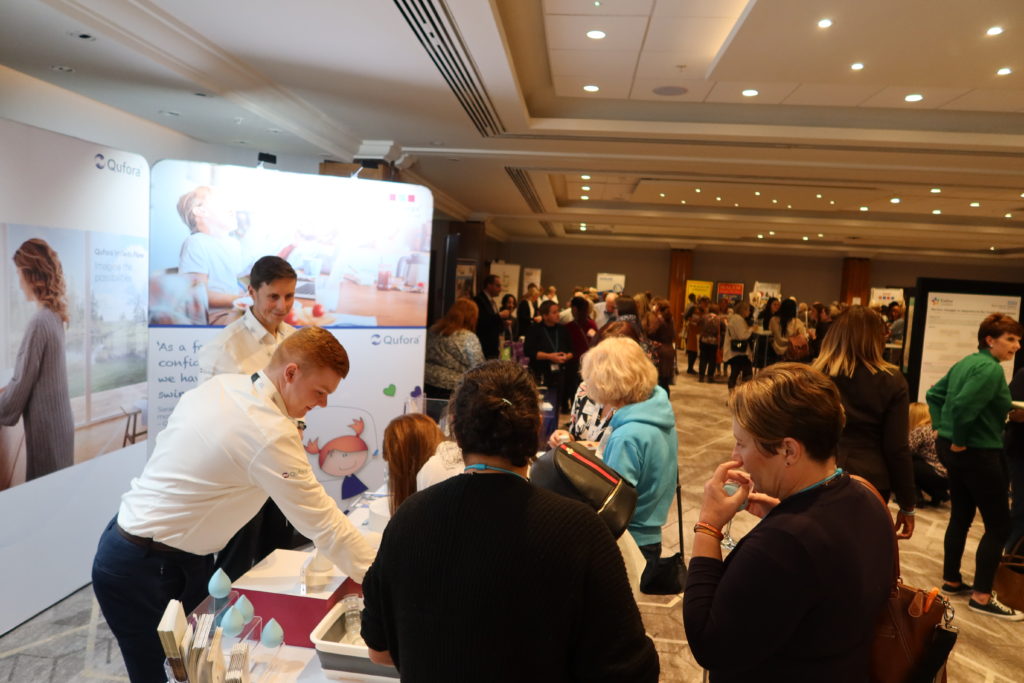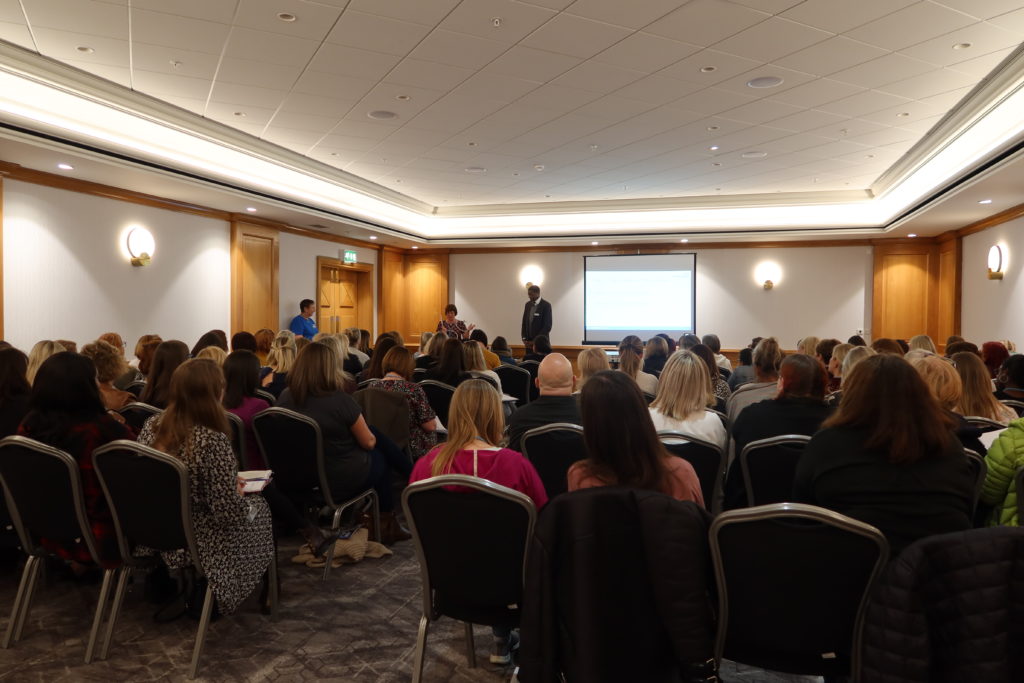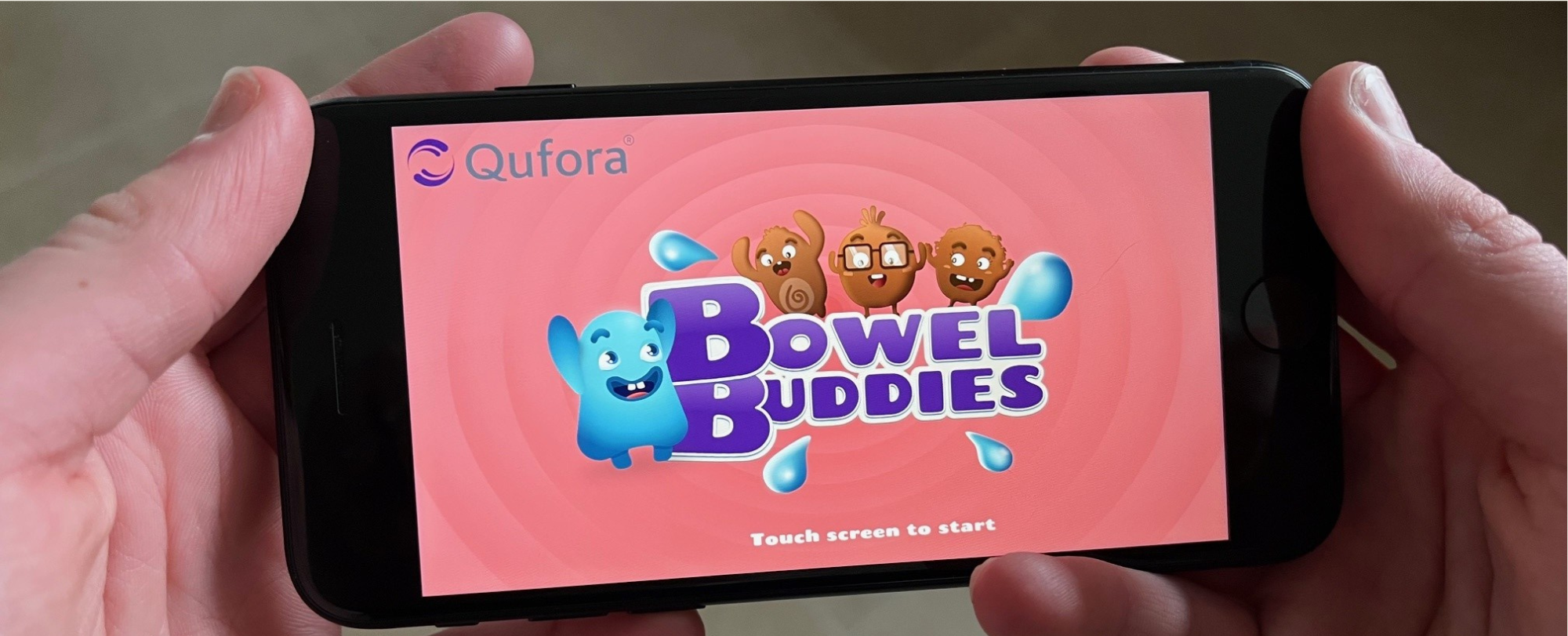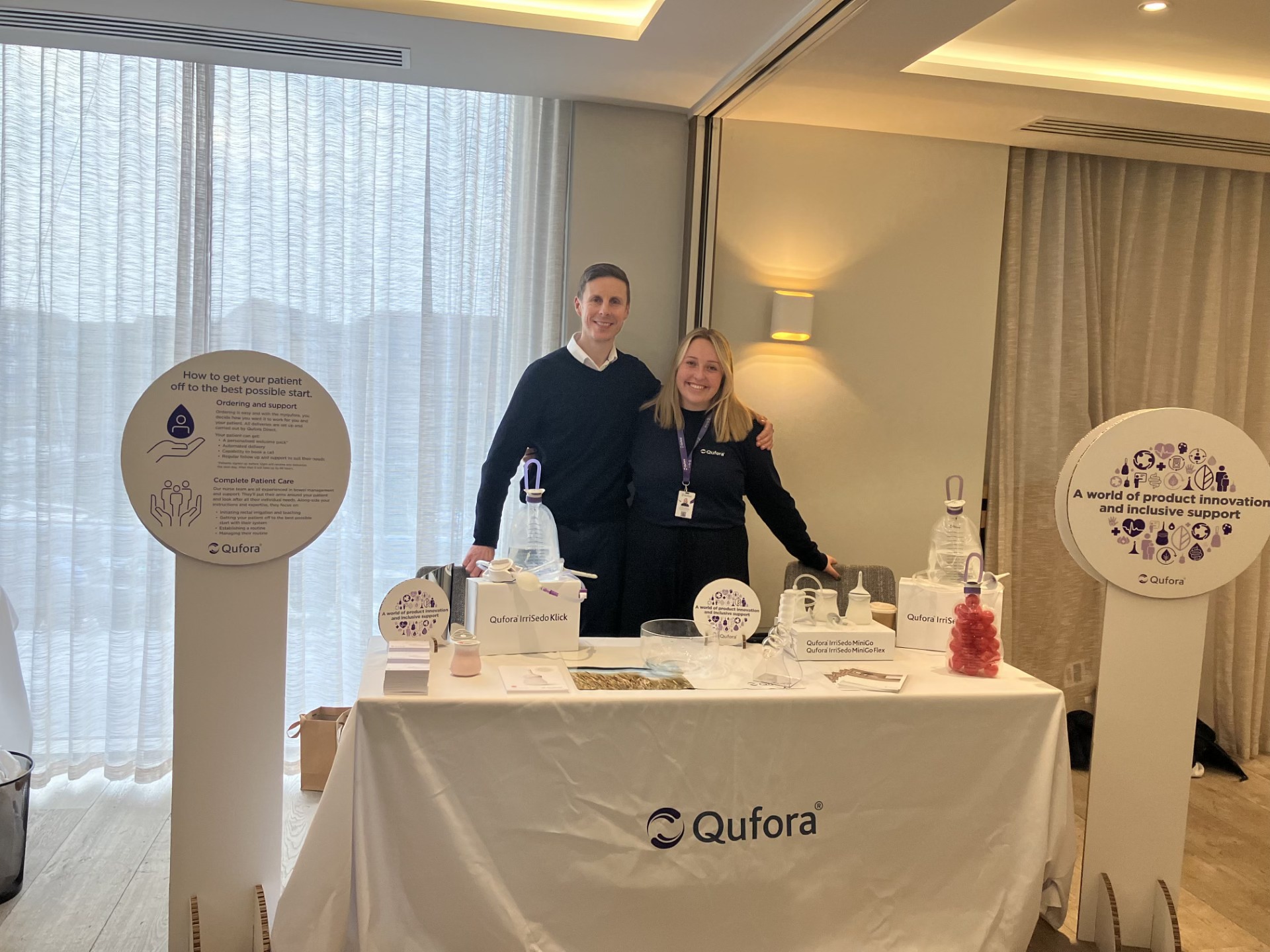By Michelle Henderson, Clinical Education Manager
I would like to start by saying thank you so much to the team at ERIC – The Children’s Bowel and Bladder Charity, for a fantastic conference – it was great to be at this event in person again and we can’t wait for the next one.
Having worked within adults’ continence care for several years, I was excited to attend the presentations and workshops throughout the day in order to expand my knowledge even further about the world of paediatric continence care – and I most certainly did!
Here is a summary of my key takeaway messages.
Effective Multi-Disciplinary-Team Based Approach to Managing Childhood Constipation
Dr Jide Menakaya, Consultant Paediatrician & Chris Giles, Paediatric Nurse, Hillingdon Hospital
The innovative PURA project has revolutionised the way children with chronic constipation are being managed. The multi-disciplinary team that works with each child, has been co-ordinated into a weekly clinic. The level of support offered has increased, meaning children have ready access to who they need to see. This has allowed a consistent approach to treatment programmes. Parents and children have been empowered and feel supported to adhere to their treatment plans.
The adoption of a ‘traffic light’ system with the Bristol stool chart makes it easier for parents and children to use and for clinicians to review progress at a glance. Their PURA formula simplifies recording and setting targets for bowel movements.
The data from this project can be used to confidently show that symptoms of chronic constipation will improve in 8 weeks, giving hope to parents and their children.
We would like to say a special thank you to Dr Jide Menakaya and Chris Giles for hosting our sponsored workshop at ERIC – it was fantastic to hear about the PURA Project and working within an MDT.
Poster presentation: ‘Parents’ opinions on the information and support offered for children’s constipation’
Warwick Medical School
This qualitative study was undertaken during the pandemic so the parent focus group was undertaken via Teams and numbers were small. Nonetheless, the findings were reassuring in the sense that parents were aware there is information ‘out there’ to help and support them, albeit with gaps in knowledge.
One area in particular that was flagged as a gap, was how to have the conversation with your employer about the need for frequent trips into school, with little notice, to change your child after soiling. An aspect of care that I hadn’t thought about before.
Mental Health and Incontinence: bidirectional relationships and causal mechanisms
Carol Joinson, Professor of Developmental Psychology, University of Bristol
This fascinating presentation discussed whether poor mental health in children and young people is a cause or result of incontinence. Two key points stood out for me:
Pre-school age children with anxious mothers (particularly when that anxiety is present during the toilet training period), have an increased risk of incontinence and constipation at primary school age.
Adolescents (around the age of 14 years) with continence problems such as lower urinary tract symptoms, nocturia and daytime wetting, had 4 times the risk of anxiety by the age of 18 years than their continent peers.
Poster presentation: ‘Wee, Poo and You. An Evaluation of a Patient Information Film’
Evelina London Children’s Charity and Guy’s and St Thomas’ NHS Foundation Trust.
This team had the opportunity to make a short educational film about wee and poo. It was found to be very engaging using cartoon drawings, with key messages summarised succinctly at the end. These included drinking lots of fluid throughout the day, setting reminders to go to the toilet, checking colour of wee and consistency of poo and keeping a diary to see how you are getting on. It’s a great educational tool for parents, carers and children to utilise. Check it out on Youtube!
How Integrated Care Systems are well positioned to improve bowel health for all children
Juliette Rayner, CEO, ERIC, Brenda Cheer, ERIC Nurse & Davina Richardson, Children’s Specialist Nurse, Bladder & Bowel UK.
The team presented their work on developing a national pathway for chronic constipation as part of the National Bladder and Bowel project.
They have adopted a collaborative approach with healthcare professionals, charities and patients – being keen to abolish the myths surrounding constipation in children, where it is often perceived as a minor issue that is self-limiting. The pathway will address the inequity of access to children’s bladder and bowel specialists.
The pathway starts with those first contacts with health visitors from birth, asking key questions about the child’s bladder and bowel function – making every contact count. This will raise awareness and help to normalise talking about these topics. It includes both primary care and unplanned admissions via A&E.
This pathway will standardise care and aims to be seen as the gold standard. It will ultimately improve outcomes for children and their families. It is currently going through NHS gateway. There is potential for it to have a huge impact on bladder and bowel care for children – watch this space for future details.
To finish – we would like to take this opportunity to say thank you to all who made it such a great conference and to the many of you that visited the MacGregor Healthcare stand and showed such a huge interest in the Qufora range of products.










